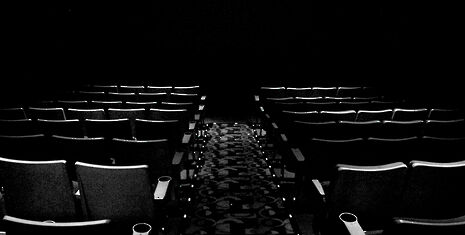Varsity’s guide to Easter theatre
At a bit of a loose end post-prelims? Staff reviewer Thomas O’Connor reveals his theatre picks for the coming term

Another term, another show. Or, if you are feeling very energetic, one per day. No doubt you will have seen the laminated posters on the fences, the flyers in the foyers, and already have the Facebook invites stacking up. My instinct is to advise you all to abandon everything else, and go to see absolutely everything.
The gorgeousness of Cambridge theatre is that it simply drips with choice. From Bad Habits to Bad Jews: Nine Parts of Desire to And The There Were None: Salt Water to Utopia on Punts. The range of productions presented this term shows that the love of the predictable and dependable is matched by the passion for new writing and risk-taking. Thankfully, sitting alongside the well-crafted classics, there is much to see over the next few weeks which has been created by non-dead, non-white, non-men.
"The gorgeousness of Cambridge theatre is that it simply drips with choice."
Birdsong is Rachel Wagstaff’s dramatic adaptation of Sebastian Faulks’ tale of war and trauma, and showcases the successful transition of literary fiction to the stage. Meanwhile Mamet’s claustrophobic two-hander Oleanna may prove fascinatingly unsettling for anyone who has ever wondered where the power lies between student and lecturer. The provocatively titled Bad Jews is a dark exploration of family, loyalties and religion, where the humour sits precariously on the realities of the past. Equally edgy is hard-hitting humour of Jez Butterworth’s MOJO, complete with an almost impossibly fast-paced script mirroring the drug-fuelled setting of 60s Soho. And stripping things back to the emotional power of a one-woman play, Why is John Lennon Wearing a Skirt? is a viciously magnificent exploration of gender and feminism, by Claire Dowie.
If you are looking for new Cambridge writing, then you are spoiled for choice. The range of creativity is impressive, with productions inspired by mental health, the classics and social suffering. There is a courageous spectrum of styles from monologues, to the smashing of the fourth wall and interactive physical theatre. Ghostwritten brings together Dostoevsky, Chekhov and Gogol, under the writing and direction of Victor Rees and Alex Tadel. Spiders, by Kate Collins looks at homelessness, broken dreams and suffering.
To stretch your dramatic experiences further, Olivia Scott-Berry’s A Floralegium, is a mosaic of Shakespeare lines interwoven into the abstract exploration of love and sanity. Sonnet 53 promises to be an immersive, site-specific mix of theatre and art, conceived written and directed by Eloise Puolton.
Original comedy, as always, is richly represented by a plethora of stand-up, sketch shows, smokers and the perennial Footlights Tour Show. The Harry Porter prize-winning Stalin’s Russia: A Teenage Romcom is Joseph McGuchan’s opportunity to impress with his tale of manipulation. And with Stuart Brown's Variety Hour: Live in Cambridge, the curious title belies the character comedy in store, while Lily Lindon’s ROM.com delivers the internet-based romantic comedy it promises.
Back on more traditional territory, The Importance of Being Earnest makes a compulsory May Week garden appearance, while the Bard is represented by The Merchant of Venice and Romeo and Juliet. Gilbert and Sullivan’s Utopia is presented in a floating production on punts, whereas Berkley’s opera A Dinner Engagement remains firmly on dry ground. Adding Agatha Christie’s And Then There Were None, and Ayckbourne’s Bedroom Farce to the list shows that there is still plenty of appetite for the familiar.
The locations, dates and details are all available on camdram.net, and through a bit of quick searching online, or chatting to anyone involved in Cambridge theatre. There are of course many more productions than can possibly be covered in one article, so distract yourself from whatever you think you should be doing by using these as a starting point to explore what is on. There is no replay or on-demand for Cambridge theatre: once it is gone, it’s gone. So, get out there and go
 News / Uni Scout and Guide Club affirms trans inclusion 12 December 2025
News / Uni Scout and Guide Club affirms trans inclusion 12 December 2025 News / Pembroke to convert listed office building into accom9 December 2025
News / Pembroke to convert listed office building into accom9 December 2025 Features / Searching for community in queer Cambridge10 December 2025
Features / Searching for community in queer Cambridge10 December 2025 News / Uni redundancy consultation ‘falls short of legal duties’, unions say6 December 2025
News / Uni redundancy consultation ‘falls short of legal duties’, unions say6 December 2025 News / Gov declares £31m bus investment for Cambridge8 December 2025
News / Gov declares £31m bus investment for Cambridge8 December 2025








